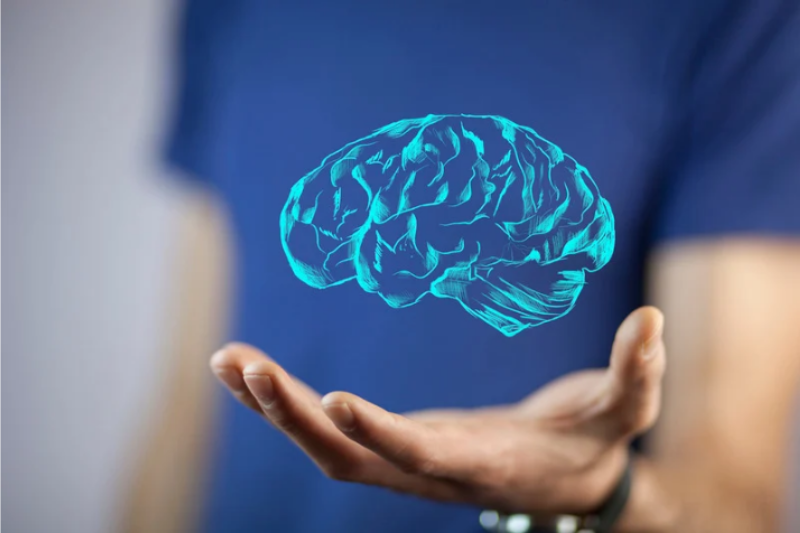We often hear the advice to “stay hydrated,” especially during hot weather or physical activity. But hydration is more than just drinking water—it’s about maintaining the delicate balance of electrolytes that allow every cell, especially those in the brain, to function at its best. Think of electrolytes as the spark plugs of the nervous system. Without them, even the most basic brain tasks—like focusing, remembering, or regulating mood—can short-circuit.
Water alone doesn't provide your body with the essential minerals it needs to perform these tasks. This is why many people who drink lots of water still experience fatigue, dizziness, or brain fog. True hydration involves restoring and maintaining electrolyte balance—key minerals like sodium, potassium, magnesium, and calcium that fuel the electrical impulses of your nervous system.
Understanding the hydration-electrolyte connection is a powerful step toward reclaiming your brain’s full potential. When your cells are nourished and your nervous system is supported, everything changes—your thoughts become sharper, your mood steadier, and your energy more sustainable. It’s not just about avoiding dehydration; it’s about fueling your brilliance from the inside out.
At Brain Health D.C., we see every symptom as a signal. If you’ve been feeling foggy, fatigued, or emotionally off, it may be time to look beyond water and explore your body’s electrolyte needs. Stay tuned as we dive deeper into how these vital minerals impact your mood, cognition, and resilience—and how to bring your brain back to balance.
What Are Electrolytes?
At their core, electrolytes are minerals that carry an electric charge when dissolved in bodily fluids. These charged particles are crucial for nearly every function in the body, especially in how your brain and nervous system operate. The most common electrolytes include:
- Sodium – helps regulate fluid balance and supports nerve signaling.
- Potassium – essential for nerve function, heart rhythm, and muscle contractions.
- Magnesium – vital for energy production, mood regulation, and stress response.
- Calcium – supports neurotransmitter release and muscle function.
- Chloride – works with sodium to maintain fluid balance and proper pH.
Together, these minerals manage the electrical impulses that allow your brain to think, your heart to beat, and your muscles to move.
Why They Matter for Brain Function
Your brain is an electrical organ. Each thought, memory, or mood shift is enabled by neurons communicating with one another through a series of finely tuned electrical signals. Electrolytes are the key players in this communication network. Without the proper balance, these signals become less efficient—leading to symptoms like confusion, poor focus, memory lapses, or anxiety.
Moreover, electrolytes help regulate the movement of water in and out of brain cells, maintaining proper fluid balance and protecting against swelling or dehydration. A deficiency in key electrolytes like magnesium or sodium can impair cognitive function, while an excess—often due to poor diet or dehydration—can also create neurological stress.
Balance is Everything
When electrolytes are too low, you may feel fatigued, dizzy, or mentally foggy. When they’re too high, it can lead to confusion, irritability, or even serious neurological symptoms. Maintaining balance is not just about what you consume—it’s about how your body absorbs, utilizes, and regulates these minerals.
At Brain Health D.C., we go beyond symptoms to understand what your unique body needs. Functional testing and personalized assessments allow us to pinpoint imbalances and create a roadmap for restoring harmony—so your brain and body can thrive in sync.
The Brain–Electrolyte Connection
Electrolytes are more than just hydration helpers—they are the foundation of your brain’s electrical and chemical communication. Every thought, memory, and emotional shift relies on these charged minerals being precisely balanced. Here’s how they influence your brain health and daily mental performance:
Neurological Function: Spark Your Mind
Your brain and nervous system operate on a complex electrical grid. Neurons (nerve cells) communicate by sending tiny electrical impulses through synapses—and electrolytes are what make those signals possible. Sodium and potassium, in particular, are key to this process. Without enough of these minerals, those messages slow down or become erratic, affecting your:
- Memory recall
- Concentration and focus
- Reaction time and decision-making
When your electrolyte levels are balanced, your brain can function efficiently, firing signals accurately and keeping your thoughts clear and sharp.
Mood and Mental Energy: Stable from Within
Low electrolyte levels can trigger a cascade of mental and emotional symptoms. Magnesium deficiency, for instance, is closely linked to anxiety, fatigue, and depressive symptoms. Likewise, low sodium or potassium can make you feel lethargic, foggy, or irritable.
You may find yourself feeling:
- Easily overwhelmed
- Tired even after rest
- Unmotivated or emotionally sensitive
These symptoms aren't "just in your head"—they may be your brain’s way of asking for better support at the cellular level.
Cognitive Resilience: Adapting Through Balance
Your brain’s ability to adapt, grow, and recover—called neuroplasticity—is directly influenced by your internal environment. When electrolytes are in balance, your brain is more capable of managing stress, processing new information, and recovering from emotional or physical setbacks.
Electrolyte balance also influences your HPA axis (the system responsible for managing your stress hormones), helping you stay grounded rather than reactive in challenging situations. This is especially important for individuals navigating chronic stress, post-concussion symptoms, or neurological conditions.
Signs of Electrolyte Imbalance
Because electrolytes touch nearly every function of the brain and body, even slight imbalances can ripple into noticeable symptoms—many of which are often misattributed to stress, aging, or overwork. Recognizing these signs is the first step toward reclaiming your energy, clarity, and emotional stability.
Physical Clues
Your body often speaks before your brain catches up. Common physical signs that your electrolytes may be out of balance include:
- Headaches: Especially those that worsen in heat or after activity.
- Dizziness or lightheadedness: Particularly when standing up quickly or after sweating.
- Muscle cramps or twitches: A telltale sign of low magnesium, potassium, or calcium.
- Fatigue: Not just feeling tired, but a deep sense of exhaustion that doesn’t resolve with rest.
These symptoms are your body’s way of signaling that something vital is missing—often the very minerals that keep your cells communicating properly.
Cognitive and Emotional Signs
The brain is especially sensitive to shifts in electrolyte levels. Imbalances can cause:
- Brain fog or a feeling of mental “heaviness”
- Forgetfulness and reduced short-term memory
- Difficulty concentrating, especially during tasks that require focus
- Mood swings, irritability, or heightened emotional sensitivity
When these signs appear, your brain may be telling you it’s undernourished at the cellular level—even if you’ve been drinking plenty of water.
When You’re Most at Risk
Certain situations can dramatically increase the likelihood of electrolyte imbalance, including:
- Hot weather or high humidity, where you lose more minerals through sweat.
- Intense exercise, especially without proper rehydration or replenishment.
- Travel, with shifts in time zones, routine, and eating patterns.
- Illness or digestive upset, which can deplete the body rapidly.
- Poor diet, especially one low in whole foods or rich in processed snacks.
- Medication side effects, including diuretics, antibiotics, or laxatives.
At Brain Health D.C., we understand that these imbalances are more than just inconvenient—they can keep you from showing up as your best self. With functional diagnostics and targeted support, we help patients restore the inner balance needed to thrive.
Hydration is Brain Power
It's time to reframe how we think about hydration—not as an optional wellness habit, but as a vital, non-negotiable pillar of mental clarity, emotional balance, and cognitive resilience. Your brain is an electrical organ that depends on the precise balance of electrolytes to function. Without them, even your best efforts—rest, nutrition, mindset—can fall flat.
Electrolyte balance is one of the simplest yet most powerful steps you can take to restore energy, sharpen focus, and reclaim your emotional well-being. Whether you're feeling foggy, fatigued, or simply want to perform at your highest level, proper hydration is where healing begins.
Let’s Discover What Your Brain Needs Most
At Brain Health D.C., we believe in deeply personalized care. Through functional testing and a whole-body approach, Dr. Nisreen Tayebjee helps you uncover what your unique brain and body truly need for optimal function—and lasting transformation.
📅 Book Now to begin your journey toward better brain health
📞 Call: (858) 208-0710
📧 Email: info@brainhealthdc.com
📍 Visit Us: 1905 Calle Barcelona, Suite 234, Carlsbad, CA 92009
🔎 Learn more about Functional Nutrition and Who We Help
.png)

.png)


